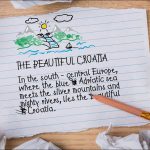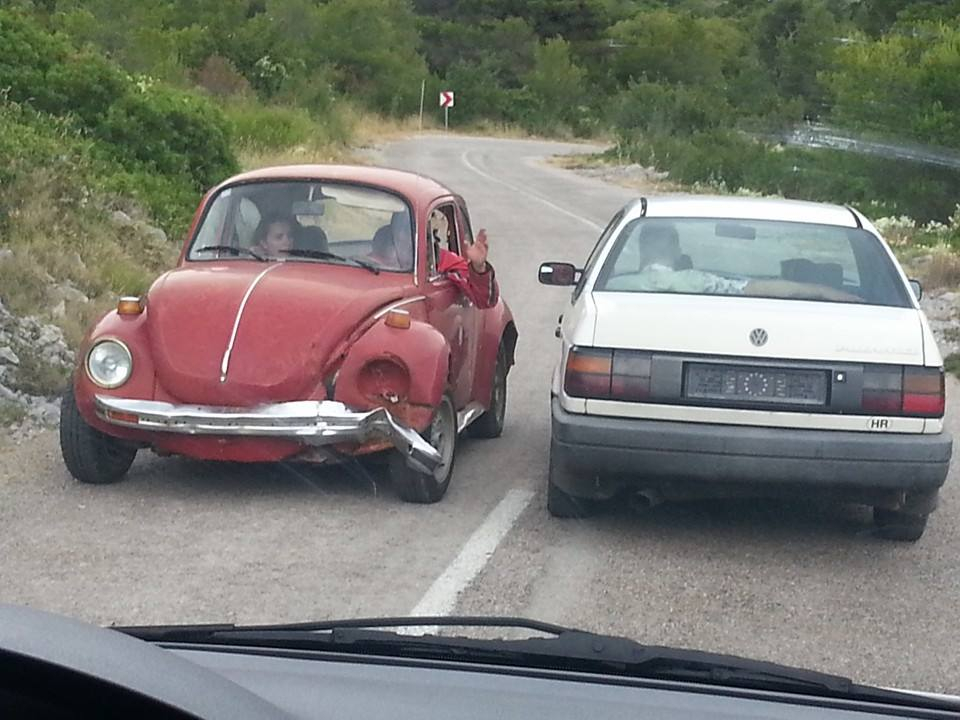
October 30, 2020 – A decade is a long time in online writing, especially when life in Croatia is the topic. Some reflections of a foreign blogger writing about life in Croatia over the last ten years.
I remember it as though it was yesterday, even though the spinning wheel of time tells me it was ten years ago this week.
A chill in the dark late winter air on the main square in Jelsa, I the only person outside, the numerous locals huddled in their coats in the warmth of the cafe interiors.
I had just written my first ever article online – Driving in Albania – Not for the Fainthearted – for a now-defunct website in Canada called Suite 101, and I was anxiously waiting for my new editor to approve my piece so that I could start yet one more career in my random passage through life. Male chambermaid, bellboy, laser crystals salesman, humanitarian aid worker, wine merchant, French and English teacher, real estate agent. And now the latest metamorphosis – online writer.
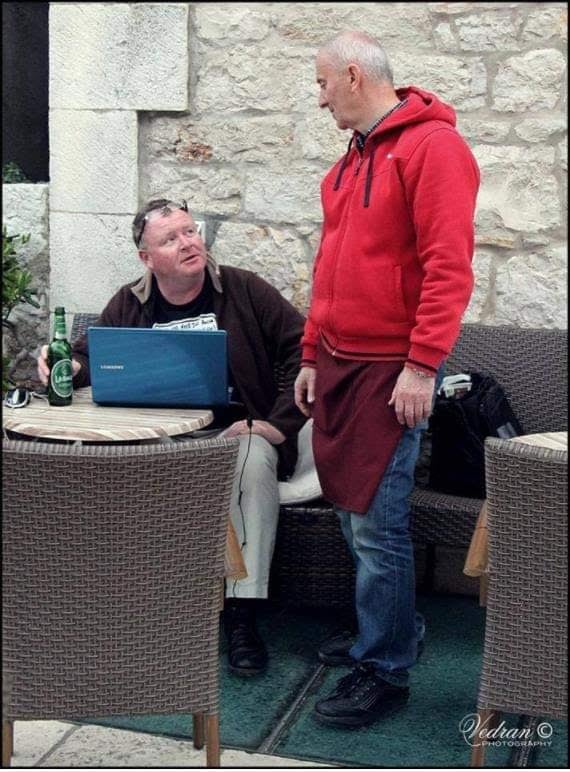
(TCN, the early years – Photo Vedran Segvic)
Within 30 minutes, the message came through. The article was not only approved but commended. More importantly, it was live on the Internet, and I was now free to publish my subsequent texts directly, without any editorial checking. My heart missed a beat when I saw the article there, live and available for all to read – and for all to comment.
The website had some excellent backend tools, including real-time reporting, so that you could see how many people were reading your stuff at any one time, and where the traffic was coming from.
It was the start of a new addiction that all bloggers suffer from to a larger or smaller degree. – statistics.
Four people were reading the article. Then 6. Now 9. All at the same time. And then my heart skipped a beat. It seemed that a Vancouver news portal was linking to my article from the data in the tracking. I went to the Vancouver portal and sure enough, there it was. In a story about a bomb in Greece, there was a box with Related News. I guess that Greek news stories are quite thin on the ground in Vancouver in October, and so my Albania driving article got my first ever online placement.
I was hooked.
I wrote a second, and then a third article, both about Hvar, and I watched them go live, get read, liked and shared. One of the articles had an incredible 11 Facebook likes within an hour of my publishing on a Dalmatian island in a cafe with a beer.
The more I researched, the more I realised that there was actually very little information about Croatia in English, apart from football, how gorgeous its beaches were, and occasionally about politics. About Hvar, there was almost nothing – crazy when you look at how many column inches it gets today. I started writing 3, 4, 5 articles a day, all about Croatia and particularly Hvar. As my Canadian site was a Google News partner, and given the lack of competing material, it didn’t take long for the Croatian media to start quoting this authoritative Canadian news portal. When in fact it was a fat Brit with a cold one sitting in a cafe in Jelsa.
When Google introduced its deadly Panda algorithm update, our site lost 94% of its traffic overnight, and I went from being regularly quoted in the Croatian media to unfindable on Google. I had learned a lot, but was it enough for me to start on my own?
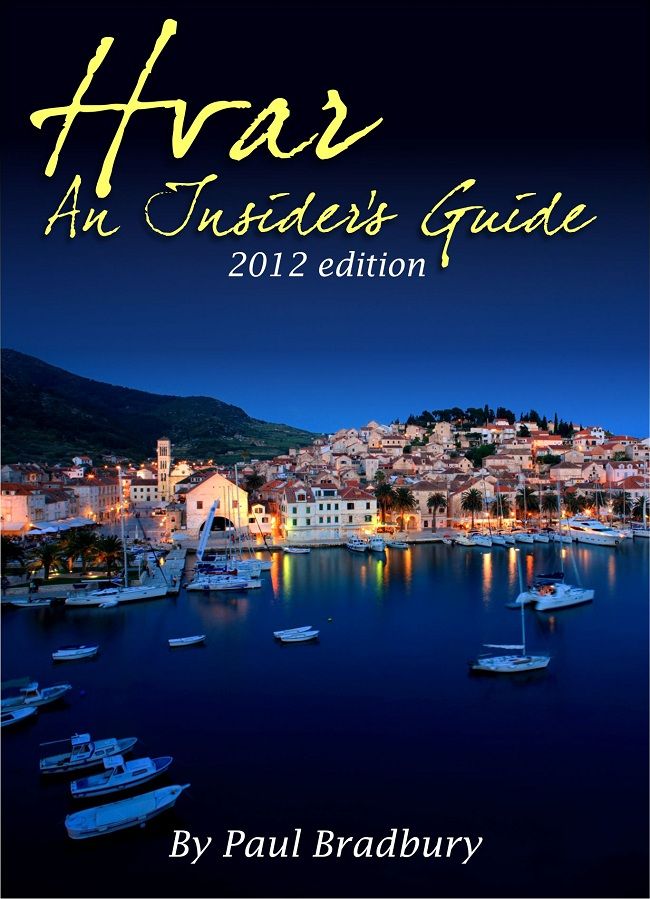
By this time, I was becoming something of a Hvar expert, having written the first modern guidebook for the island, and when my wife suggested I follow it with a website, given that the five island tourist boards did not communicate with each other or do any joint promotion, the idea of Total Hvar – the origin of TCN – was born.
Life was good.
I was living on the most beautiful island in the world, working from a cafe (I suppose I was an early digital nomad), and my job was to write happy stories of discovery about my adopted island. Locals loved me, as did the island tourist businesses, as they were getting some excellent promotion of the island, as well as many of the islanders learning things about their own island that they didn’t even know.
As a bubble of life in Croatia, it was perfection. Happy stories – and fascinating, untold, happy stories – about an elite tourist destination, and endless sunshine island living, what could be more perfect?
Of course, life is not a bunch of roses, even on the most idyllic of Dalmatian islands. Complaining is an Olympic sport in Croatian cafes, and I was fascinated to see how locals would spend their whole (extended) coffee break complaining about things, then doing nothing about it. It was as though the art of complaining was part of the coffee ritual, and the ensuing discussion sorted out the problem.
One day, I decided to write about one such problem which had been dominating more cafe attention than usual. If I discussed it on my portal, that could lead to an online discussion, which might even lead to some kind of change. A healthy way to discuss problems and move them forward. And anyway, all I was doing was voicing the views of all the locals.
I was shocked by the response. No less than 7 people unfriended me on Facebook, with two looking the other way when I walked down the street (and they continue to do so 10 years later), and a torrent of abuse from people telling me to F*CK off back to England if I didn’t like it here.
From the very same people who were complaining about the same thing I was writing about the day before.
It was an important lesson – a foreigner really is not allowed to have an opinion in Croatia. Even if that opinion is the same as the local one when it might be aired in English where tourists might hear something negative about Croatia.
I remember back then just how sensitive I was to online criticism. After all, I was not writing about my own country, and local knowledge would always trump mine. I remember how a negative comment on an article about the local kindergarten ruined my afternoon and had me torturing myself to be more careful with my words.
I laugh at that memory, ten years on writing about life in Croatia. For then I started a news portal, Total Croatia News.
Not only did it take me off the island, but also out of its happy tourist bubble. And into the warm embrace of the Croatian keyboard warrior.
When I started TCN just over 5 years ago, in July 2015, I really had no idea what I was doing. I had only just heard the word ‘uhljeb’ for the first time, and I really hadn’t graduated much further than my idyllic tourism bubble. I certainly had no concept of the polarising politics of Croatia, the obsession with the past, the timewarp world of some of the diaspora, the cult of Partizani v Ustase, or the online abuse and occasional death threats (or, as one so eloquently put it – death treats) that came my way by message and phone.
It was a baptism of fire.
If I was sensitive about a negative comment about an article about a kindergarten, then clearly running a news portal about Croatia was not for me. It is certainly not for anyone who is sensitive in any shape or form. The Croatian keyboard warriors are brutal at every turn. It took me a while to get used to them, but now I look on them with a kind of perverse affection. And I know for sure that if they don’t come out in force when I write an opinionated piece, then I am losing my touch.
I learned early on that there is little point in engaging in discussions online. A discussion might start out with the best of intentions but it does not take long to descend to Ustase v Partizani, and the most important question of all for all commentators – Di si bio devedeset prve? (Where were you in 1991, ie when the Homeland War started?)
![]()
It was like going for a swim in a shark tank, where there was little hope of survival, and where a throwaway comment (nobody cared about them on the Hvar tourism bubble site) could start an online war, as well as the most spectacular conspiracy theories. I forget which secret service I am currently working for – MI6, CIA, FSB, Mossad or the chaps from Greater Serbia – but when we finally moved from Hvar to Varazdin, I publicly came clean with my spying mission. Having spent a decade monitoring the olive harvests of Vrisnik and Pitve, I had been reassigned to count the number of Varazdin pumpkins.
I was genuinely bemused at how much emotion and rage one can arouse from an article on a portal like TCN, as well as the passionate opposition to things that my writing evoked. Could it be that I was touching on sensitive things that might actually benefit from being discussed out in the open?
With the negative comment on my kindergarten article a distant memory, I decided to write about the realities of Croatia, the good, the bad and the ugly. There were certain things, such as Vukovar and Oluja, that I thought best to leave alone, as they were raw and I did not know enough about them, but I made gentle inroads into a new area for TCN.
Not only did I have to be more careful with words, but now that more people were reading, the national (and then international) media started taking notice. A sign of just how the media has changed with the Internet was evident in December 2015. I was the only witness to a curious event on the main square in Jelsa – the removal of the Christmas star – but one hour later, it was the number one story in Croatia (and the subject of discussion on the island for months). One article picked up initially by Index.hr and then the rest of the national media.
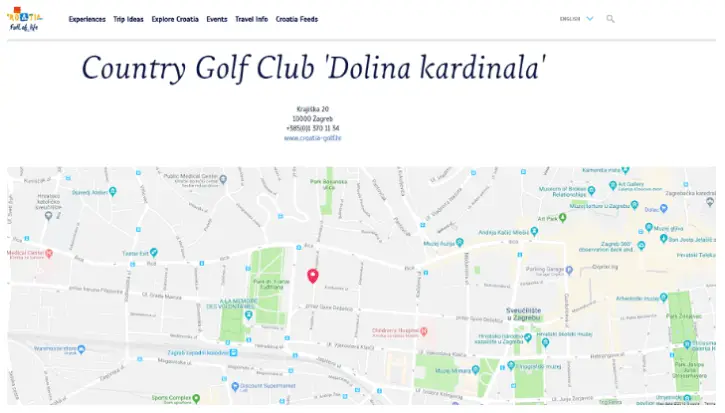
(Screenshot from Croatia.hr)
As time passed, it was interesting to note that not only was the Croatian media using TCN as a source for some stories, but some stories would bring about small elements of positive change. When I politely pointed out, for example, that I had not been able to locate the 18-hole golf course the Croatian national tourist board was promoting in central Zagreb, the golf course disappeared from the official website the same day, Over the next few days, golf courses, real and imaginary, appeared on the site, and it was hard to keep up, leading to Tourism Quiz of the Summer: How Many Golf Courses Will Croatia Have Next Week?
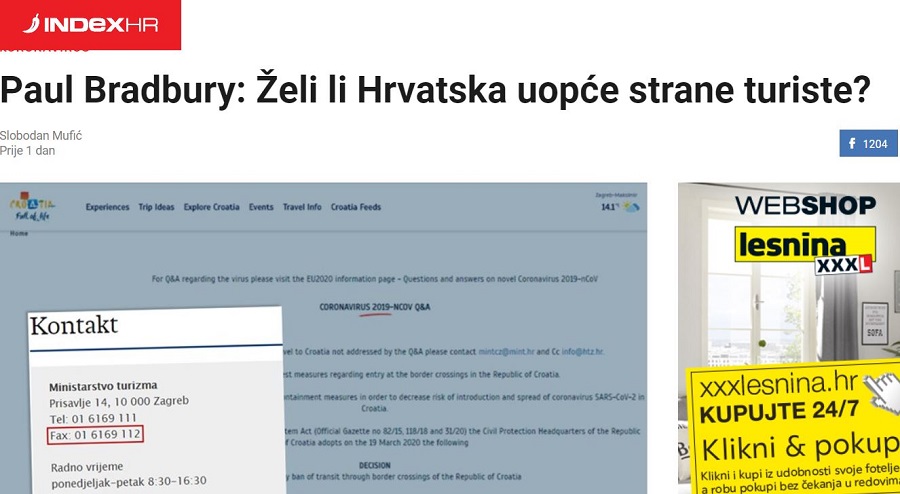
Sometimes the changes came really quickly. When I pointed out in May that it was a little odd that the only means of contacting the Ministry of Tourism on their home page was by letter, phone of fax, the fax machine was abolished from the ministry within the hour of Index publishing the story. At the same time, more than 3 months into the pandemic, with zero information on the ministry website about corona, and a rather unhelpful and non-user friendly page on the national tourist board, both sprung into life around May 11th, with shiny new pages and the first useful information (read more in this article on Index).
Obviously, when one points out some of the shortfalls of the powers that be in Croatia, the likelihood of any official recognition of one’s work is fairly unlikely, but there were others who seemed to appreciate TCN and its work, as far away as Malaysia. The last thing I expected to be doing last year was to be flying with my wife to Kuala Lumpur to pick up a media award at the inaugural Medical Travel Media Awards, but there we were. An amazing trip, and a sign of TCN’s growing international reach. It was a far cry from those early days with a beer and a laptop and Jelsa winters.
And there is no recognition quite like the recognition of one’s writing colleagues.
The 2014 Marco Polo FIJET Grand Prix Award at the National Society of Journalists for best international promotion of Croatia was the first thing I had won since coming third in the Under 9 chess challenge in Surrey back in 1978. A huge and unexpected honour.
In addition to the expected torrent of abuse from the army of keyboard warriors and a growing number of trolls, I was surprised by an ever more frequent type of correspondent – the second and third generation diaspora, who had been raised in his/her own Croatian bubble abroad – and one which had little to do with the realities of life in Croatia today.
“Dear Mr Bradbury, I have been following TCN for some time and wanted to thank you and your colleagues for giving me a different perspective on my homeland. I am a second-generation Californian, and everything I read on TCN – written by people who actually live in Croatia – is very different from what I was taught in my diaspora community. Thank you, and I look forward to learning more about the realities of life in the modern Croatia. You have certainly changed my perception of my homeland.”
This kind of email came through more and more, and I realised that there was a niche to fill, a disconnection between the younger diaspora and their home country. I started writing more about the realities of life in Croatia from my own personal experience to help people understand how things really are today. As many people who opposed this perceived negativity also appreciated it. As with everything else in Croatian society, opinion is split down the middle.
Croatia has a default negative mindset, I concluded, and the saying that a Croatian can forgive you anything but success is certainly true. These were two themes that I touched on in my interview with Croatian interviewing legend Romano Bolkovic in the interview above.
But what happens if you swap the negativity for positivity?
One thing I have noticed about writing in Croatia is that if you start with a positive theme, you are quickly worn down with skepticism and negativity. It seems almost at times that people here don’t want to hear about success and look forward to happier times, as they are entrenched in a groundhog day of disappointment and broken promises. But I also learned that there are enough bubbles of positivity all over the country that are moving things forward. Surround yourself with the positive people, immerse yourself in the fabulous lifestyle, and Croatia really is the best place on the planet.
****
“Don’t forget you have a wife and children,” was the chilling message on my cellphone before the line went dead. Yes, we are a democracy, but you write about certain things at your peril. It is a fine line that is hard for a foreigner to know when he is transgressing. At least in Croatia one receives a polite warning, unlike other places in the Balkans.
For those of you who sometimes ask why we don’t write about certain topics in Croatia, there is your answer.
****
After almost a decade of writing about Croatia, I felt more confident approaching the foreign taboo topics, such as Vukovar and Oluja. The longer I was here, the more I realised that actually nobody was writing about them in English, and so I decided to visit them both. And both were very different to my preconceptions – and therefore, possibly, to other people too.
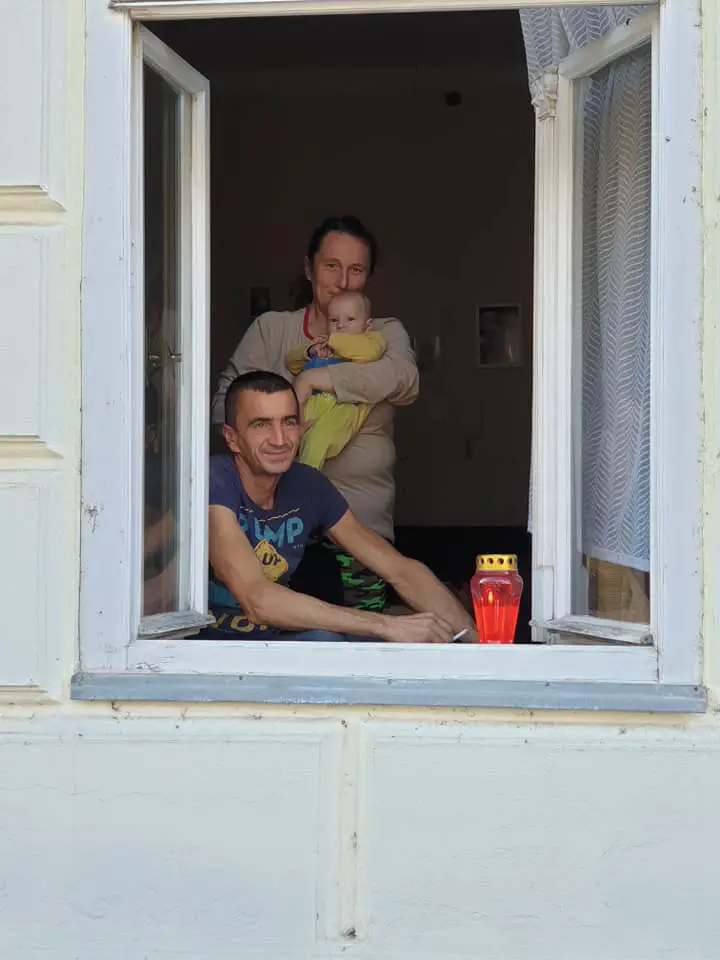
Vukovar Remembrance Day Through the Eyes of a Foreign Resident
Operation Storm: Foreign Reflections on a Visit to Oluja 2020 in Knin
The good, the bad and the ugly. Croatia is an incredible country, with SO much to write about, that I feel it is an absolute privilege to be here and to be able to communicate its magic to a growing number of interested readers. Some 17 years after arriving, for example, here are 30 incredible new experiences I got to write about in 2019 alone.
Ten years on, I no longer worry about a critical comment on an article about a kindergarten. Indeed, I rarely read comments at all (sorry, trolls). But I do enjoy exploring and discovering this unique paradise, celebrating the excellence, constructively criticising the shortfalls, and trying to highlight its magic to forward-thinking people with an interest to help ensure a brighter future for Croatia.
To all those who have followed my writing over the last ten years (especially those who are still reading), a heartfelt thank you. May the next ten years be equally exciting – I have a feeling they will be.
Cheers!



